Talking Therapies: Myriam’s Story
 Myriam was looking for on-going support to help manage her mental health following time spent under psychiatric care. She was referred to NHS Talking Therapies. We spoke to her about her experience and why she found the therapy helpful.
Myriam was looking for on-going support to help manage her mental health following time spent under psychiatric care. She was referred to NHS Talking Therapies. We spoke to her about her experience and why she found the therapy helpful.
How did you hear about Talking Therapy? What made you seek support?
Well, my story with mental issues goes back to six years ago when I had a manic episode. I was sectioned into an NHS psychiatric ward, then transferred to a private hospital. After my episode I was really, really struggling emotionally and psychologically, so I went to stay with my family in France for a couple of years. I had suffered trauma and stress following a difficult divorce, and I would also suffer from paralysing anxiety attacks, usually around money worries.
When I came back to the UK in January 2020, I reached out to my GP and told them I would like some support as I was still very up and down. Of course, then the pandemic started, so I was offered online talking therapy sessions. I had my first series of sessions then, and I’ve since had another course of sessions. They were arranged online and over the telephone. I had 6-8 sessions I think, once a week to start with, or every other week if I couldn’t make it. They were flexible around me.
Can you talk me through how the sessions were run? What did they involve?
I was asked to answer a questionnaire before each session, so they could monitor if my mental state was better or worse than the previous session. It was structured well; the therapist was always asking me the same set of questions each time for consistency. Then we would go into whether something had happened since the last session.
I also remember that they provided links to further information or advice depending on what we had discussed in that session. For instance, I remember having issues with insomnia, so she was sending me ways of dealing with insomnia, or ways to manage alcohol, if that would be helpful. There were also links to things I could do to take care of my general wellbeing, like sport or art, things like that. I always had further links to things that might be helpful at the time.
How have the sessions helped you? Have you seen an improvement in your situation and feelings?
I’ve done a lot; I’ve taken on board yoga, meditation, mindfulness, breathing, discipline, so that’s what I carry on. The insomnia information was really helpful. Also, what helped a lot was planning my week. Sometimes it’s hard to plan my week because I’m quite impulsive, so it can be difficult. But basically, it’s about being very mindful of not taking on too much, saying ‘no’ to certain things, postponing certain things, being very aware of what makes me tired. Before, I could take on a full day and have zero space to recover, energy wise, so that really helped me make my own rules of doing things my way to pace myself.
You said you thought the therapist was very good during both sets of sessions. What makes you say that?
Obviously, you would expect them to be kind, but they were really very kind. They were also very good at explaining things, or providing an explanation for why they asked certain things or why we discussed certain things.
Also, the link between the practical part and the additional information was really helpful. They customised their links and advice to my story, it was a nice relationship.
Would you recommend talking therapy to other people?
Yes. Obviously since my episode, I’m even more interested in psychology, but I’ve started a deep personal development. I’m a real fan and believer of that; I think everyone should go to a therapist. We all have so many issues that we don’t even know, once you start uncovering it, then you realise then there’s even more.
Anxiety dealt with by yourself is like digging yourself into a hole, because you have no idea of how to come out of your own head. It’s like if you have fallen into a well and you’re trying to get out by yourself. You might get lucky and get out, but it takes a long time and is hard. But with help, you can climb out much faster.
What would you say to someone to encourage them to try talking therapy?
I always say ‘you don’t know what you don’t know’, so you should always try new things. Talking therapy should be part of an on-going regime.
For me, the recommendation came from a trustworthy source, which was my GP, so speak to them, find out more.
If you haven’t been diagnosed with something, or you don’t know the name of something, the jargon and language is too much. You have no idea if you are depressed, or if you have anxiety, bipolar, whatever. The line between them can be a bit blurred, and sometimes treatment is different, so it’s best to talk to someone.
Whether it’s talking therapy, whether it’s exercise, then this is what you want. Whatever it takes to feel better.
During her recovery, Myriam has rediscovered herself through art, which has led her to explore new opportunities in her career and her wellbeing…
When I had my episode and I was sectioned, I had also what I think was a spiritual awakening, an artistic calling. I now call it my artistic ‘coming out’, because I have no other way to describe it. I lived in an altered state of consciousness for about two weeks during my recovery, and it gave me this kind of vision. My family was completely panicked, but for me, I had the best time of my life there. Suddenly, I saw myself. My life’s purpose and mission was so clear. It was very deep, it was very transformational. It was awakening to myself. It’s only been six years, but it was a change of identity for me. It has been such a journey. I had this spiritual awakening. I knew I needed to seek ongoing support for my mental health, but I also knew I wanted to focus on my art and help myself heal through expressing myself creatively.
If you need support…
If anything in Myriam’s story sound familiar and you would like to try talking therapy, you can refer yourself quickly and easily online. You can use our helpful assistant, Wysa, who will guide you through the questions, or you can complete the standard form. Once you’ve submitted your details, someone will contact you within 5 working days to have a chat and get you the help you need.
This story was originally published in issue 12 of Community Living Well magazine. It has been edited for website purposes. You can sign-up to our mailing list to receive the magazine directly into your inbox.
Author: Stewart Gillespie
Posted on: 21st February 2024



